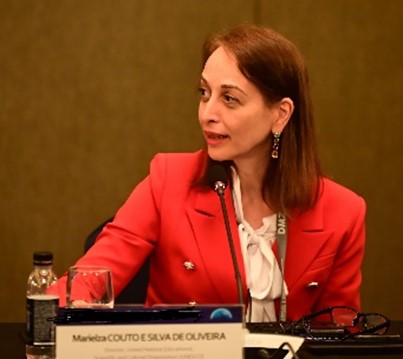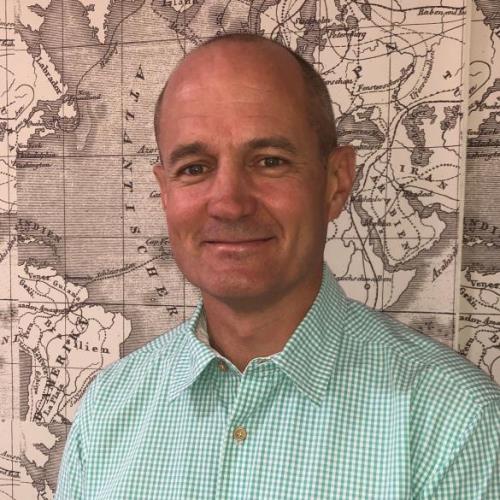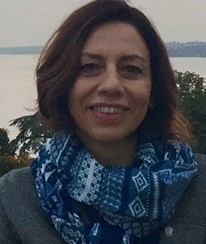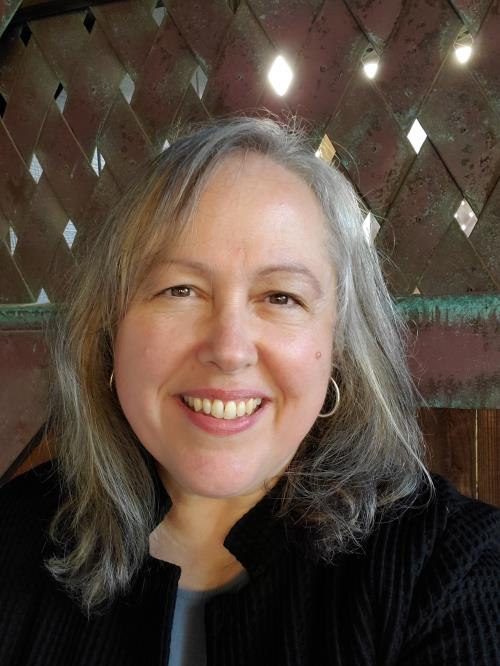WSIS Action Lines C7: e-Learning: Implementation of the UNESCO Recommendation on Open Educational Resources (OER)
United Nations Educational and Cultural Organization
Session 190
The UNESCO OER Recommendation : Platforms for Sharing Knowledge Openly
The session will also emphasize the sharing of information and experience on OER platforms, the importance of partnerships and the perspectives in this area.
Guiding questions:
1. How the 2019 UNESCO OER Recommendation can be used as a theoretical foundation/conceptual framework for public digital ecosystems/platforms and its five action areas
2. Without international collaboration (content, capacity, infrastructure), can platforms be built? The Dynamic Coalition and the OER Recommendation as one of the pillars of this echosystem/ There is no platform without strong and sustainable partnerships
3. What is the current state of play of national OER platforms/ecosystems? National experience ? Lessons learned? How can we leverages the national successes
4. to develop opportunities, including capacity and policies, for teachers and learners to benefit from open educational resources? What lessons/recommendations can be shared with others from these experiences?
5. How can we foster the development of national, multinational and global OER platforms that are open and publicly funded?

Marielza Oliveira is the Director of the UNESCO Communications and Information Sector’s Division for Digital Inclusion, Policies and Transformation, where she leads the support to Member States to strengthen capacities for access to information, digital inclusion, digital transformation, and protection of documentary heritage.
Ms. Oliveira is also Secretary of the intergovernmental UNESCO Information for All Programme; and the UNESCO Observer in the Internet Governance Forum Multistakeholder Advisory Group (MAG) and Policy Networks on Internet Fragmentation, on AI, and on Meaningful Access; in ICANN; in the Internet & Jurisdiction Policy Network; and in the European Commission’s High-Level group on Internet Governance.
Ms. Oliveira is also the UNESCO representative to the ITU/UNESCO Broadband Commission for Sustainable Development’s Membership Committee. Prior to her current position, she was Director of the UNESCO office covering the East Asian subregion, in charge of all areas of UNESCO’s mandate in China, Democratic People’s Republic of Korea, Japan, Mongolia, and the Republic of Korea.
Her experiences before UNESCO include leading the United Nations Development Programme’s global data analytics and results management at the Executive Office of the Administrator; Associate Director for Governance at UNITAR; oversight and support to multiple UNDP offices and programmes in Latin America; democratic governance programme officer in UNDP Brazil overseeing the fiscal modernization of 7 state Secretariats of Finance, the capital markets regulatory entity, and others; and UNDP Brazil’s campaign manager for the UN Millennium Development Goals. She was also Systems Engineer at the US Army Construction Engineering Research Lab (USACERL), where she developed award-winning decision support and expert systems for the US Department of Defense; senior consultant at Fundacao Dom Cabral in Brazil, advising global corporations on marketing and financial strategy; and Director of Executive Education at Brazil’s Ibmec Business School, in charge of 800+ MBA students across 12 Executive MBA programmes. She holds a Master of Science in Finance and a Ph.D. in Business Administration with a minor in Cognitive Science from the University of Illinois at Urbana-Champaign, USA. Her professional honors include, among others, the 2007 Human Development Awards Special Recognition for Innovation in Human Development Measurement Tool; the 2005 UNDP Administrator’s Award for Innovation and Commitment; the J.M. Jones Award in Business Administration; the selection by Guia da Boa Governança Corporativa Exame as one of the 15 most important corporate governance specialists in the Brazil; and the Commendation Letter for her nomination as the USACERL Researcher of the Year Award.

Zeynep Varoglu is the Senior Programme Specialist in the Universal Access to Information Section of the Communications and Information Sector at UNESCO Headquarters in Paris. Ms. Varoglu‘s work currently focuses on the implementation of the UNESCO OER Recommendation and the UNESCO ICT Competency Framework for Teachers (ICT CFT) as well as initiatives in open, distance, flexible and online education. Ms Varoglu holds a Bachelor of Arts (B.A.) from the University of Toronto and a Master of Education (M.Ed) from the Ontario Institute for Studies in Education (O.I.S.E.), University of Toronto.

Neil is based in South Africa, from where he has provided policy and technical advice and support to a range of national and international clients regarding educational planning, uses of educational technology and distance education, both as a full-time employee at the South African Institute for Distance Education (SAIDE) from 1993 to 2001 and as Director of Neil Butcher & Associates since then. He has worked with various educational institutions (including UNESCO and the Commonwealth of Learning), assisting with transformation and research efforts that focus on effectively harnessing the potential of distance education methods, educational technology, and OER.
Neil has travelled extensively through the developing world conducting research on educational policy, higher education, distance education, education management information systems, and educational technology for a range of organizations, governments, and donors. He works with OER Africa as the project’s OER Strategist and is also currently consulting to the World Bank on a range of project activities across several African countries and in Asia.

Nora Shabani is an Education Specialist with the UNICEF Regional Office for Europe and Central Asia. She is the regional lead on inclusive education and digital learning. She works closely with the UNICEF education teams and education stakeholders across 22 countries and advises on the different components of national systems for digital learning, including learning platforms, content, connectivity, devices, capacity building, innovation for learning with particular focus on accessibility, assistive technologies and solutions that address the needs of children with disabilities and other vulnerable children. During the time of school closures due to COVID-19, she led multi-country digital and remote learning initiative, LearnIng as an emergency mechanism to address the immediate country needs for digital solutions, teacher training and remote learning strategies for the most vulnerable students.

Lisa is CEO and founder of the Institute for the Study of Knowledge Management in Education (ISKME), an education nonprofit dedicated to make learning and knowledge-sharing participatory, equitable, and open. Petrides is a scholar and international open educational resources (OER) expert who has helped lead the development of tools and strategies to create and support the field of open educational practice. Her work includes the creation of ISKME's award winning OER Commons, a digital public library of open educational resources and collaboration platform that facilitates the discovery and improvement of high-quality digital resources that are free, openly licensed, and available for a diverse range of learners. She also serves as a member of UNESCO’s OER Dynamic Coalition Advisory Group, supporting the implementation of the UNESCO Recommendation on OER. A former professor in the Department of Organizational Leadership at Columbia University, Teachers College, she has advised and led development efforts that have enabled schools, colleges, universities, ministries of education, and the organizations that support them to expand their capacity to use data and information, and create inclusive knowledge-driven environments focused on teaching and learning. Petrides received her B.S. from University of California, Berkley, MBA from Sonoma State University, and Ph.D. in Education Policy from Stanford University.
-
 C1. The role of governments and all stakeholders in the promotion of ICTs for development
C1. The role of governments and all stakeholders in the promotion of ICTs for development
-
 C3. Access to information and knowledge
C3. Access to information and knowledge
-
 C4. Capacity building
C4. Capacity building
-
 C7. ICT applications: benefits in all aspects of life — E-learning
C7. ICT applications: benefits in all aspects of life — E-learning
-
 C11. International and regional cooperation
C11. International and regional cooperation
This session relates mainly to WSIS Action Line C4 - Capacity building and C7 - E-Learning as well as C3 - Access to information. It focuses on the sharing of openly licensed educational content for equitable access to knowledge and information.
-
 Goal 4: Ensure inclusive and equitable quality education and promote lifelong learning opportunities for all
Goal 4: Ensure inclusive and equitable quality education and promote lifelong learning opportunities for all
-
 Goal 5: Achieve gender equality and empower all women and girls
Goal 5: Achieve gender equality and empower all women and girls
-
 Goal 9: Build resilient infrastructure, promote sustainable industrialization and foster innovation
Goal 9: Build resilient infrastructure, promote sustainable industrialization and foster innovation
-
 Goal 10: Reduce inequality within and among countries
Goal 10: Reduce inequality within and among countries
-
 Goal 16: Promote just, peaceful and inclusive societies
Goal 16: Promote just, peaceful and inclusive societies
The UNESCO OER Recommendation supports Member States in the creation of inclusive knowledge societies and achievement of the 2030 Agenda for Sustainable Development, namely SDG 4 (Quality education), SDG 5 (Gender equality), SDG 9 (Industry, innovation and infrastructure), SDG 10 (Reduced inequalities within and across countries), SDG 16 (Peace, justice and strong institutions) and SDG 17 (Partnerships for the goals).